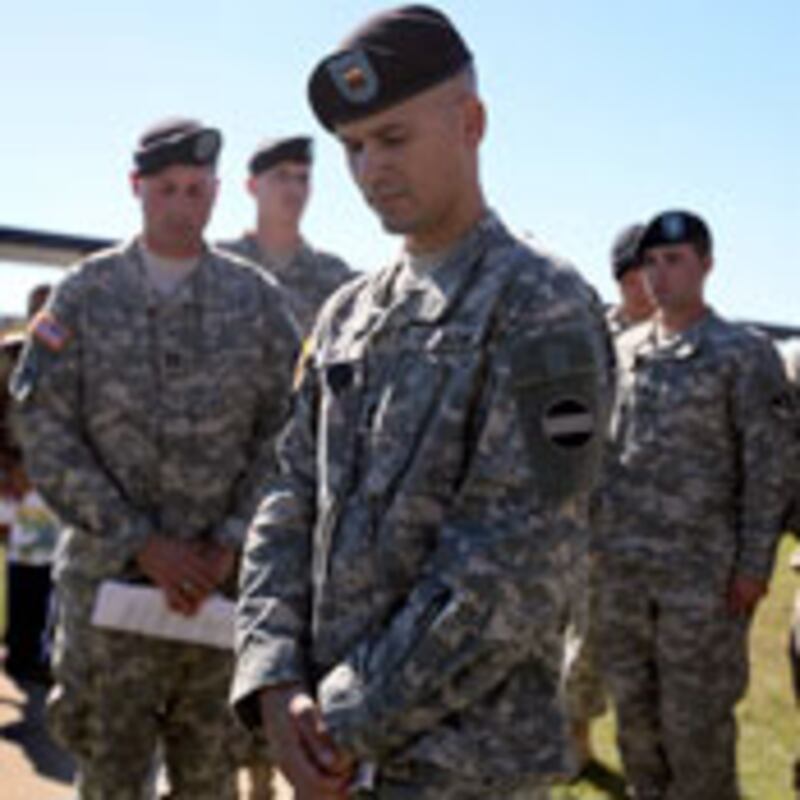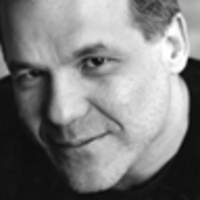
No other prosperous country not torn by civil conflict has anything like our volume of mass killings—Fort Hood and the shooting in Oregon are just the latest examples. Lee Siegel on America's shameful epidemic.
Nidal Malik Hasan may have shouted “Allahu Akbar” before his murderous onslaught at Fort Hood, but his actions were part of an American phenomenon that is a national emergency.
You had barely enough time to grasp what might have happened in the Cleveland home of convicted rapist Anthony Sowell, where police so far have found the remains of 11 women, when news came of Hasan’s massacre. Yet just as that terrible event was starting to sink in, the airwaves were burning up with reports of a shooting rampage in an office building in Orlando, Florida, in which eight people were said to have been shot, one—as of this writing—fatally.
It’s time to start asking ourselves whether our famous American freedom—in both its liberal and conservative formulations—is not actually a subtle form of dehumanizing tyranny.
More than health care, the economy, jobs, Afghanistan, Iraq, public malfeasance, private dishonesty, civil rights, disease or tainted food, mass murder is American’s primary problem and most fundamental shame. No prosperous country not riven by civil conflict has anything like our volume of mass killings. And yet for all of the fascination with mass murder in the media, in Hollywood—and among us—no politician will do more than pay lip service in condemning it. No journalist will crusade against it. No celebrity will take it up as a cause.
Nobody does a damn thing to try to stop it. Conservatives don’t want to make an issue of mass murder because then they would be confronted with the fact that nearly all of the massacres are committed by people using guns. Liberals don’t want to cry out about it because then they would have to address the fact that the violence of our entertainment—TV, movies, videogames, our proliferating apps—makes killing seem like just another strategy for coping with reality. If the utterly immoral legality of handguns and assault weapons puts killing within reach, then vicarious violence, sanctified by every corner of the entertainment culture, makes murder ethically and conceptually possible.
To be sure, mass murder happens all over the world. But it occurs at nothing close to the frequency with which it erupts in the U.S. And when massacres do take place in other countries, they are often the result of political conflict, grinding poverty, a culture of vendetta, or the deforming forces of an authoritarian regime—as in China, which seems to have more than its share of mass killings. Here, however, in the world’s sanctuary of freedom and prosperity, Americans are murdering each other, and their families, in groups.
• Jeff Stein: Military Bases are ‘Wide Open to Attack’Indeed, it's time to start asking ourselves whether our famous American freedom—in both its liberal and conservative formulations—is not actually a subtle form of dehumanizing tyranny. There is the economic anguish, of course, and the inability of our mad capitalism to slow down and care for its casualties. But neither Columbine nor the murders at Virginia Tech took place during an economic crisis. We have to start examining whether the general free-for-all of our economic system, and the pleasure-seeking ethos of our commercialism, and the ideology of immediate gratification that is corroding any type of respect for authority—we have to determine whether these "freedoms" are actually a tightening dog collar turning us all into rabid animals.
The news reports about Hasan’s massacre remind us that it was one in a stream of such events: 13 people gunned down at an immigration center in Albany last April; 10 killed in Alabama last March; 32 shot dead at Virginia Tech—eerily, Hasan’s alma mater—in 2007. Some reports recall the 1991 mass shooting in Killeen, Texas—right outside Fort Hood—in which 24 people were killed. The university in nearby Austin was once the site of the infamous Texas tower sniper, who in 1966 slaughtered 14 people on the campus after murdering his wife and mother at home.
But you don’t have to go back that far to get a sense of how shockingly common mass killings are in America. You don’t have to go back much further than the beginning of this year:
In January, Ervin Lupoe shot to death his wife and five children and then himself in Los Angeles. That same month, Keith Luke was accused of murdering three people in Brockton, Massachusetts. In March, Robert Stewart was charged with the murder of eight people in a North Carolina nursing home. In Santa Clara, California, Devan Kalathat killed his two children, three other relatives and himself. Last April, D’Andre Howard was accused of killing his father, grandfather and girlfriend’s sister. Christopher Wood murdered his wife and three children and then took his own life in Middletown, Maryland. A New York tax attorney named William Parente beat to death and asphyxiated his wife and two daughters and then committed suicide in a Maryland hotel room. Kerby Revelus killed two of his sisters in Milton, Massachusetts, cutting off the head of his younger sister as she sat in front of her birthday cake as police helplessly watched before shooting Revelus dead. In Orting, Washington, James Harrison murdered his five children and then killed himself.
In August, George Sodini killed three women and wounded nine in a gym just outside Pittsburgh, then took his own life. Richard Ringold was accused of shooting and killing four people in Lawrenceville, Georgia. One month later, a cabinetmaker named Charles L. Dalton Sr. killed his wife and two children in Mt. Airy, Maryland, then apparently killed himself. Just this past week, William Maxwell killed his wife and two children and himself in Fayetteville, North Carolina.
This is only a partial list of the mass murders that have taken place so far this year. The slaughter of strangers is bad enough. But the rising frequency of people murdering their families—and then themselves—is beyond chilling. We get all bent out of shape over the debates about various issues, each political side hurls escalating slurs at the other, pundits routinely cry that this or that event means the sky is falling. And yet the routine— routine—murder of groups of people and of families by family members doesn’t seem to ruffle anyone’s feathers.
Amid all this killing, it’s almost comical that there are people who blame our country’s mess on either Rush Limbaugh or Barack Obama. In my current dark mood, I’m tired of hearing about both our domestic bugbears and our foreign adversaries. The true enemy is the American genocide of mass murder and all its many causes. When a woman at Fort Hood who had been near the shootings told reporters, with strange evocativeness, that “you could smell the gunfire,” I thought of D.H. Lawrence. “The sympathetic bond is broken,” Lawrence once wrote. “We stink in each other’s nostrils.” America is beginning to stink.
Lee Siegel has written about culture and politics and is the author of three books: Falling Upwards: Essays in Defense of the Imagination; Not Remotely Controlled: Notes on Television; and, most recently, Against the Machine: Being Human in the Age of the Electronic Mob. In 2002, he received a National Magazine Award for reviews and criticism.






